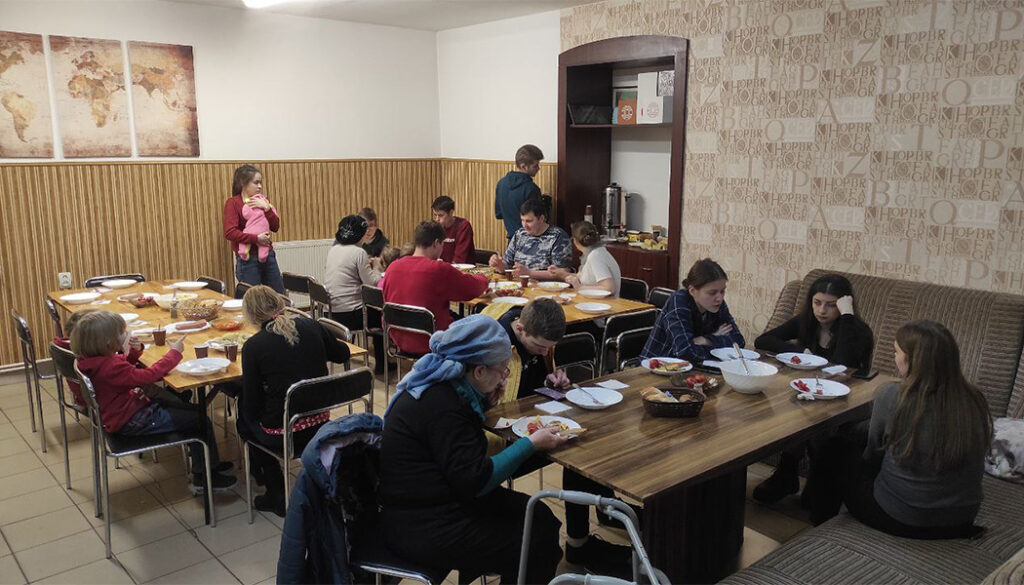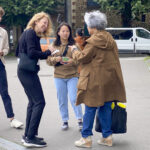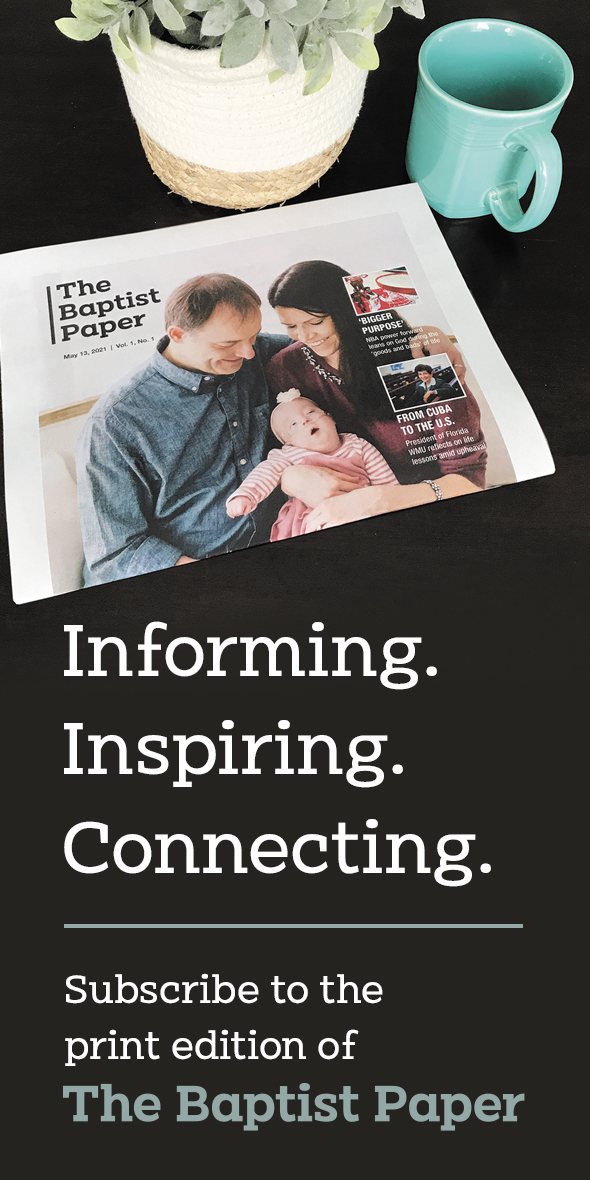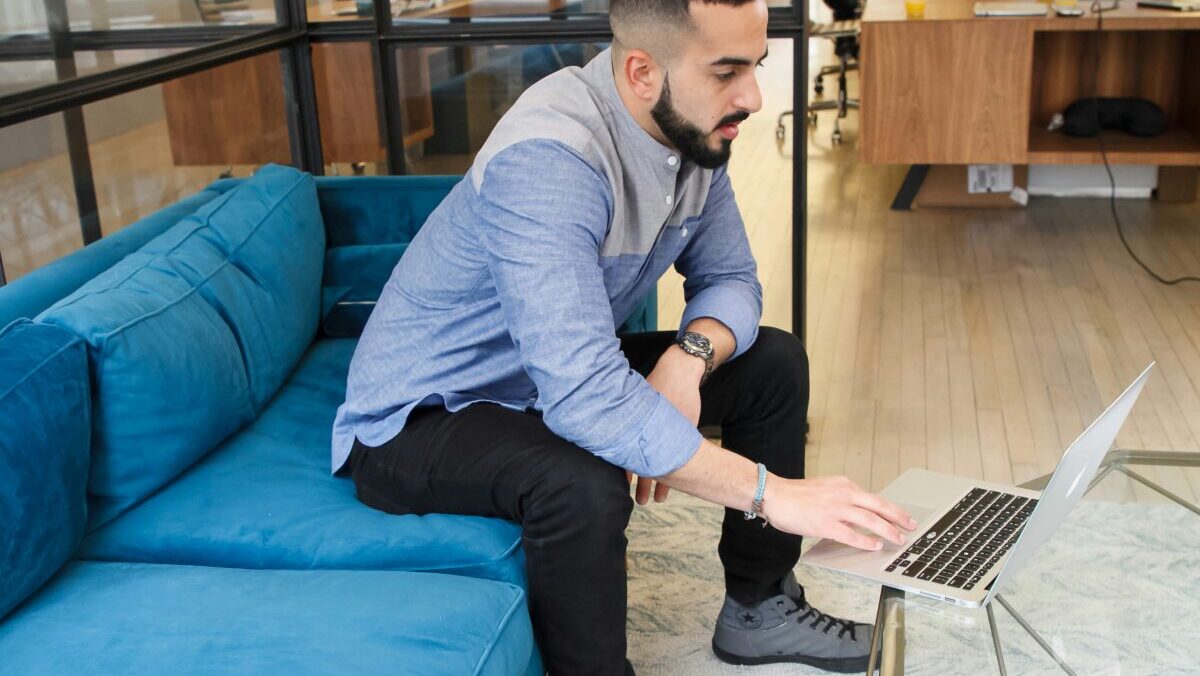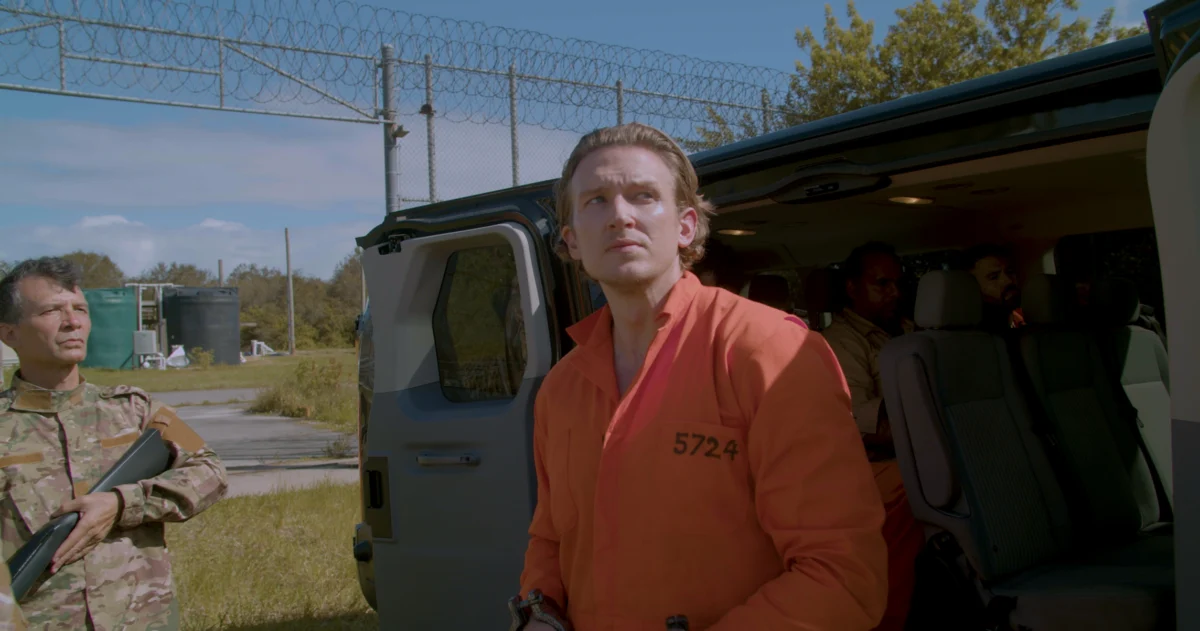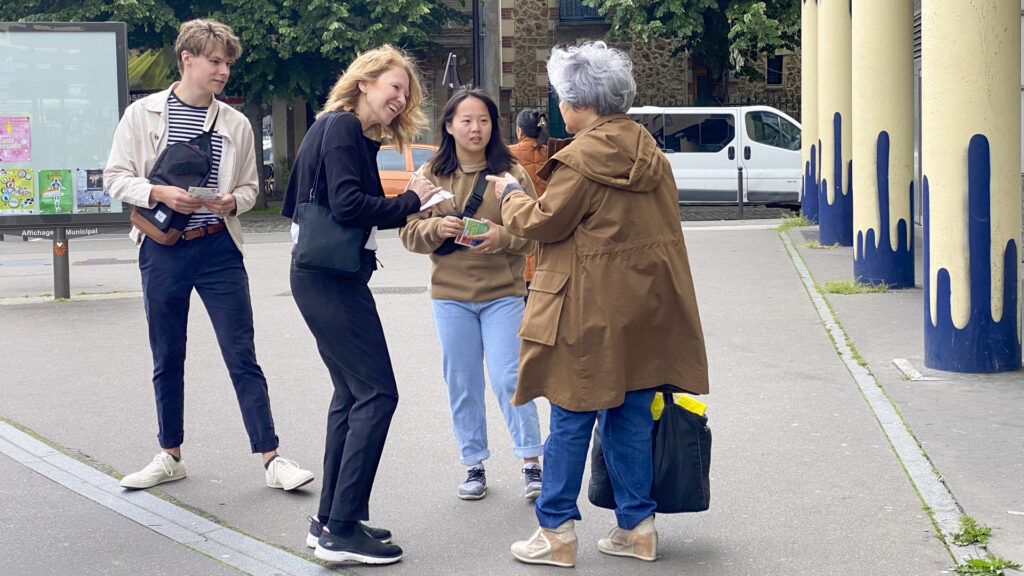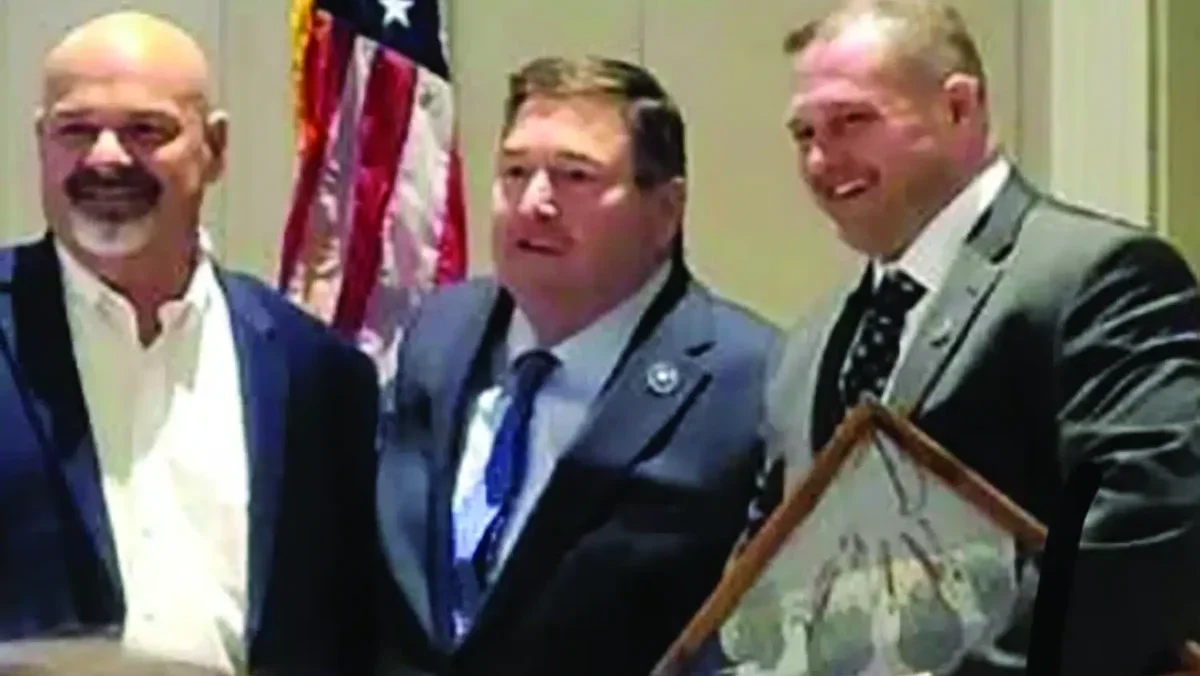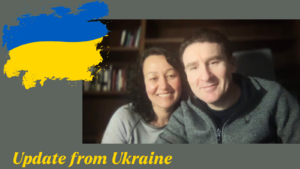
As Ukraine continues to defend itself against the Russian invasion of its borders, Baptists are helping those fleeing the attacks and asking for continued prayers for their country.
Baptists are a significant presence in Ukraine. The country has the second-largest Baptist population of any European country, and the Ukrainian Baptist Union is the largest Protestant group in Ukraine with more than 100,000 believers across 2,000 churches.
The Ukrainian Baptist Theological Seminary in Lviv has 1,300 students, and in recent years, Ukraine has become more prominent in sending Baptist missionaries to other countries as well.
Yaroslav Pyzh, president of the Ukrainian Baptist Seminary, a graduate of Southwestern Baptist Theological Seminary, spoke to leaders at Southwestern via Zoom Feb. 26 and summarized the crisis bluntly: “We need a miracle from God.”
“We just need a miracle, and that’s exactly what will save us — God’s miracle,” Pyzh said. “So, I ask people to pray for a miracle without specifying what miracle.”
Pyzh correlated the current situation in Ukraine with the story of Gideon from Scripture.
The story “kind of stands out” with Gideon’s small “army of 300 going against thousands of people,” Pyzh observed. “In our case, we have a disadvantage in everything.”
But, Pyzh said, Ukrainians are “strong in their spirit” with a “great willingness to fight.”
Marshaling resources
As he prays for the miracle, Pyzh is marshaling the people and resources of his school to help refugees of the war.
Many Ukrainians have been fleeing the country through Lviv, which is approximately 40 miles from the shared border with Poland.
The Ukraine State Border Guard Service is stopping all men between the ages of 18–60 years old from leaving the country, which Pyzh said means only women and children are leaving. As Ukrainians are leaving the country for Poland, their trek through Lviv has opened doors of ministry for the seminary.
During the first three days of the war, the seminary served almost 250 people through humanitarian aid, offering a place to sleep, food and counseling services. The seminary staff converted three of their buildings into makeshift dormitories with mattresses and pillows, and they are prepared to convert classrooms and office space as sleeping quarters if necessary.
Two waves of refugees have come through the seminary seeking aid. Pyzh said the first wave of people, who came through the first day of the war, were in “fairly reasonable emotional condition” while the second wave, who came almost a day later, were “in very bad condition.”
“I don’t even want to know what they went through,” Pyzh said, adding “they are scared.”
On the first day of the attack, the seminary was focused on its students and alumni. Classes were in session and the on-site students from the eastern part of Ukraine could not return home. Pyzh and his team realized there were more people to help. In response, Pyzh divided the seminary staff and professors into four teams: administration and support, receiving and placing, the chaplaincy team and the communications team. He empowered each team to use their “best judgment” in making decisions.
Pyzh said seminary leadership has used their network of 2,000 students and graduates in Ukraine and Poland to mobilize and offer aid to the displaced Ukrainians who are traveling through Lviv and need places to stay.
Housing refugees
Using the same structure of the database that is used to keep track of students and alumni, seminary leadership has transferred the template into an online form that allows them to record names, contact information and other pertinent information of refugees who come through the seminary for help. Pyzh explained the information can be used later in the event people are “lost or missing.” The seminary can then provide information about their last known contact.
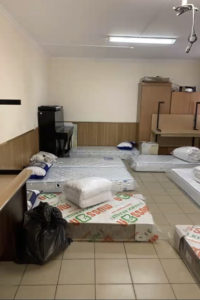
A second database was established for students and alumni to volunteer to open their homes to help house refugees. The faculty and staff of the Ukrainian seminary currently have displaced families living with them, including Pyzh and his wife who have two families in their home. The students and alumni who volunteer their homes are matched with displaced people who come to the seminary for aid as they travel through Lviv.
The third database is for those who want to volunteer to help, which ranges from providing counseling to refugees who need it, making homemade meals, providing toys for the children or donating clothes. Many of the volunteers are the seminary’s students.
Pyzh said the seminary is not charging people for help, but explained those who have been helped are grateful, including one woman who left behind a small box of chocolates and 1,000 Ukrainian hryvnia, the equivalent of approximately $35 U.S., with a note asking that the money be put toward helping someone else.
Because the country has been placed in a “war state,” large gatherings are not allowed. However, Pyzh said, churches across the nation are responding with prayer and collecting items as they have “become a center for the community where people can donate food, clothes, everything.”
“All that is happening mostly in western Ukraine, because we are not occupied and we are not having any kind of pressure,” Pyzh said. “Kyiv, Kharkiv, even Odessa, I guess, and other cities, eastern Ukraine, they cannot do that because they are under constant threat of those military actions there. But here, people are definitely open to do whatever needs to be done.”
Pyzh said during the last three days people have “gotten a lot more older” than they were previously, describing each day as a year.
“I think what our people experienced in the last three days, I’m sure changed them completely,” Pyzh said. “All the pain, all the fear, all that kind of stuff that we [are] experiencing is making us into a different type of people. I really hope that we will become stronger. We will understand that everything we have is not really ours. We are kind of lucky to have what we have, and so you better value what we have. And I really hope that as a result of that people will give glory to God.”
How to help
Pyzh said believers can support the seminary through prayer and financial assistance.
Concerning prayer, Pyzh is specifically requesting fellow Christians across the world to petition God in the following ways:
- Seeking a miracle from God to rescue Ukraine
- Provision of resources to serve people
- For the war to end quickly
- For people to realize a miracle from God means glory goes to God.
The Ukrainian Baptist Theological Seminary is also seeking financial assistance through its American-based charitable organization, the Ukrainian Partnership Foundation. The money received through UPF will purchase food for relocated Ukrainians, clothes and hygiene products, medicines, bedding and cleaning supplies, which will be used for refugees and students. Donations will also fund diesel gasoline and cover guest costs of families who must now live with their students, Pyzh said.
Donors may visit the foundation’s website here and select UBTS Emergency Fund in the drop-down menu.
Additional prayer resources
The Baptist World Alliance held an hour of prayer today (Feb. 28) for Ukraine and the crisis in Eastern Europe and provided prayer resources to guide the effort. (Click here to express solidarity with the BWA call to prayer for Ukraine and Eastern Europe. Download prayer materials by clicking here and here.)
The Texas Baptists Christian Life Commission has also put together a prayer guide for Ukraine. Click here to access the prayer guide.

